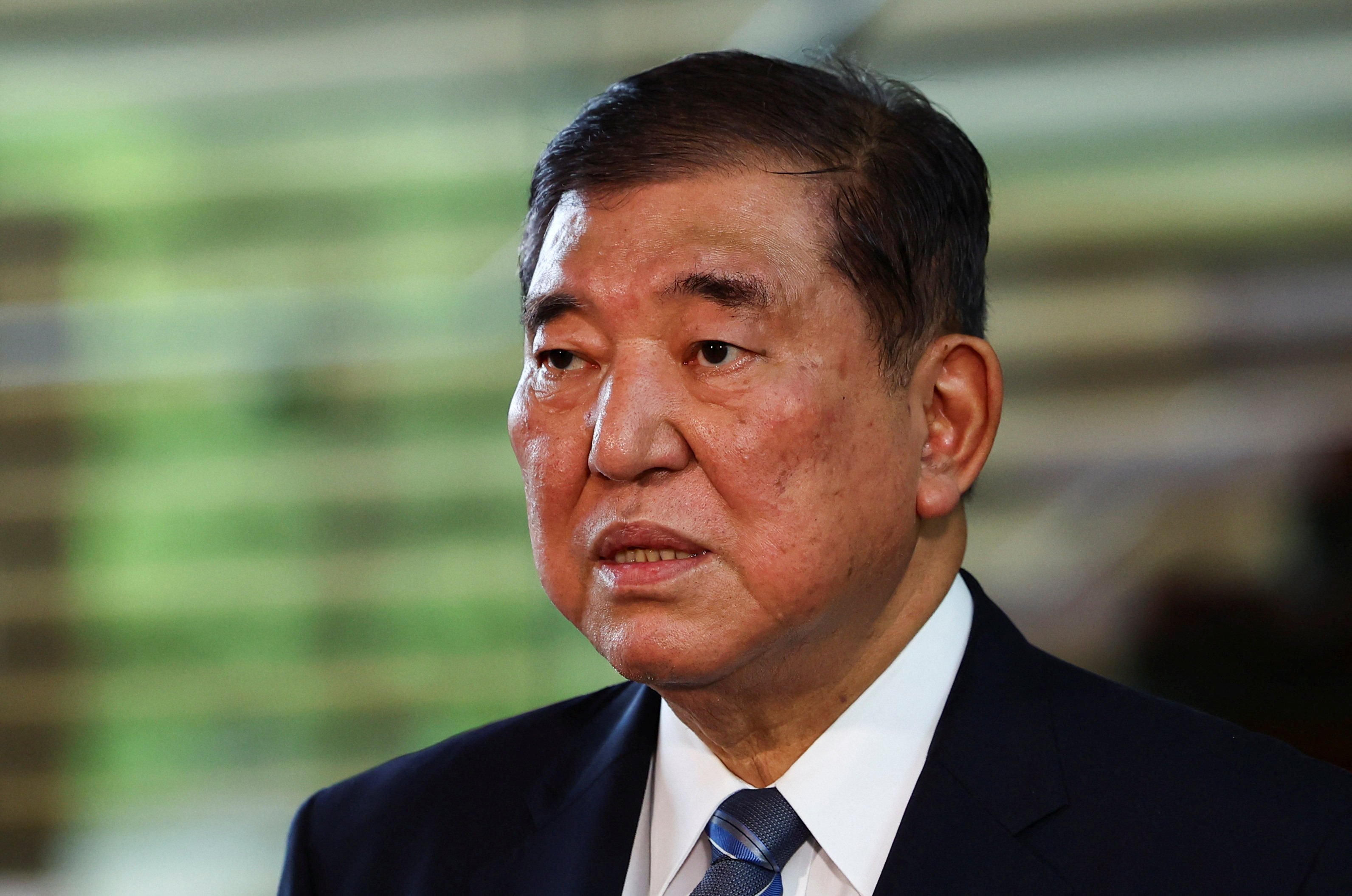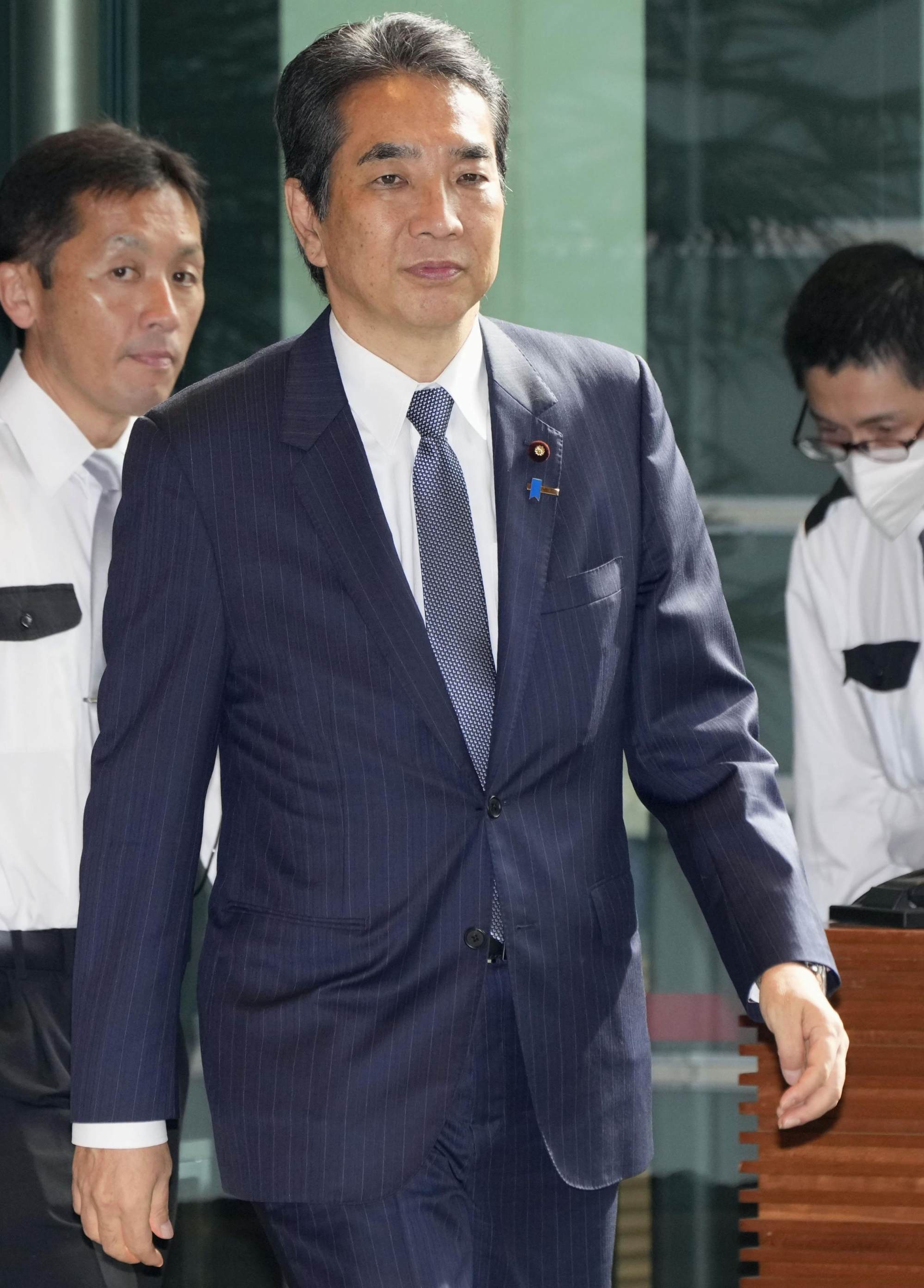Can Japan’s Ishiba weather political storm after rice remark buries farm minister?
The prime minister’s ratings have plunged ahead of two major elections as he battles party members’ political gaffes and rising rice prices

Japanese Prime Minister Shigeru Ishiba accepted the resignation of his agriculture minister on Wednesday over a tone-deaf remark about rice donations – a political blunder that analysts say could further erode public trust in his leadership ahead of two make-or-break elections this summer.
Taku Eto stepped down less than 24 hours after Ishiba insisted he would not dismiss him, following public outcry over comments in which the minister boasted that he never needed to buy rice because supporters regularly sent him sacks of it.
The gaffe, made during a speech in Saga city on Sunday, drew fierce criticism at a time when Japanese households are grappling with rice shortages and soaring prices.
Critics said the remark illustrated how out of touch the ruling Liberal Democratic Party (LDP) had become, as families across the country ration a staple many now find increasingly unaffordable.

The resignation adds to a string of political headaches for Ishiba, whose approval rating is tumbling amid economic anxiety, diplomatic tensions and growing divisions within his own party.
His leadership will be tested first in the June 22 Tokyo Metropolitan Assembly election, followed by the House of Councillors vote in July – two contests that analysts say could determine whether he remains in power.
Some observers argue that Ishiba could yet regain support if he manages to curb inflation, stabilise ties with China and secure key trade concessions from US President Donald Trump. But few believe he has the clout to achieve those goals given the LDP’s increasingly fractious internal dynamics.
“It’s clear what Ishiba should do, and if he were to achieve at least some of those aims then he could regain some of the political capital that he has lost – but I have no confidence that will happen,” said Stephen Nagy, a professor of international relations at Tokyo’s International Christian University.
“I expect the opposition will continue to try to portray his government as incompetent and corrupt, while the LDP itself is in a civil war between the moderates and the conservatives,” Nagy told This Week in Asia.
“The right sees Ishiba as uncredible in his dealings with both the Trump administration and China and says his entire approach to Beijing has been a fundamental mistake.”
Party problems
That criticism from conservative ranks has been amplified by other recent incidents involving right-wing figures in the LDP.
On Tuesday, Ishiba apologised to Okinawa Governor Denny Tamaki for comments earlier this month by Shoji Nishida, a far-right party member who claimed that exhibits at a peace museum “revised the history” of fighting in the closing stages of World War II in the prefecture.
Nishida claimed descriptions at the museum suggested that Japanese troops had “swarmed” into an area and caused the deaths of more than 100 local girls of the Himeyuri Corps, who had worked in hospitals during the fighting on the islands. He also said the descriptions made it sound like the invading US forces had “set Okinawa free”.
The museum has since said there were no such descriptions on its premises.
Nishida eventually issued a grudging apology for his comments, with Ishiba following up to smooth things over with Tamaki.
“Ishiba is being let down by people around him and with the elections coming up the timing is obviously bad, but among people that I talk to, the biggest reason that he is losing support is his management of the rice price situation,” said Hiromi Murakami, a professor of political science at the Tokyo campus of Temple University.
The biggest reason that he is losing support is his management of the rice price situationHiromi Murakami, Temple University professor
“Before he was elected, he made many promises and came out with a lot of quite unique ideas about how to tackle some of the problems that people are facing. People believed him and expected him to do what he had promised before he was elected,” she said.
“But now, it is obvious that he has been ‘captured’ by internal LDP politics and he cannot get out of the grip of the right wing of the party. It may not be entirely his fault, but people feel let down.”
Equally, the average Japanese is extremely concerned about the impact of Trump’s tariffs on the domestic economy, particularly given the importance of exports such as vehicles to the US market. All of Japan’s vehicle manufacturers have indicated they are anticipating a significant impact on their profits in the coming months, which will inevitably have a knock-on effect on related businesses.
Toyota has announced that it expects a drop of nearly 35 per cent in its 2025 profits and Nissan plans to cut 20,000 jobs and permanently shut a number of domestic plants.

“Ishiba is struggling with the tariffs issue and even though more talks are scheduled to take place this week, I see no evidence of a positive outcome,” Murakami said.
The Tokyo assembly election will be the first litmus test of Ishiba’s standing with the public. A poll by the Yomiuri published on Monday suggested that while the LDP is the single largest party in the chamber, just 18 per cent of eligible voters plan to back it at the ballot box. In a similar poll before the 2021 election, support for the party was running at 30 per cent.
Voters said they were still angry with the LDP over 26 members’ failure to report around 35 million yen (US$243,000) in income from fundraising parties. An investigation into the matter has made no progress and handed out no punishments.
Things look little better on the national stage in July. A Kyodo News poll published on Sunday showed Ishiba’s support rate falling 5.2 percentage points in the space of a month to a record low of just 27.4 per cent.
“I do not see Ishiba surviving the internal politics of the LDP,” Nagy said, suggesting that the party might replace him “in an attempt to crawl back to some degree of credibility with the public” and pre-empt a likely drubbing at the polls.
Sticking with Ishiba going into the election is likely to mean, in a best-case scenario, another minority government. And if that was the best he could do in July, then he would be summarily replaced, Nagy said.